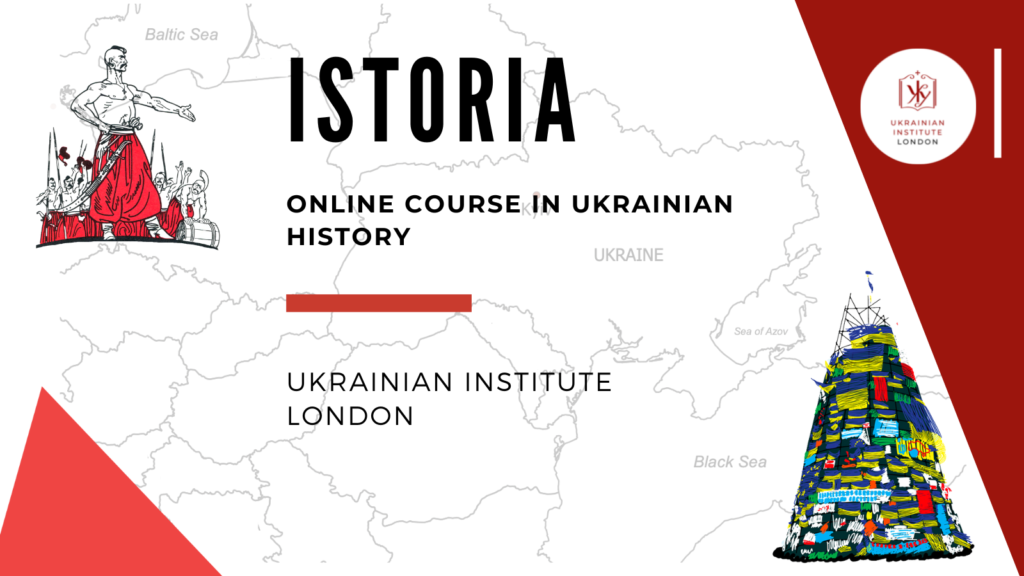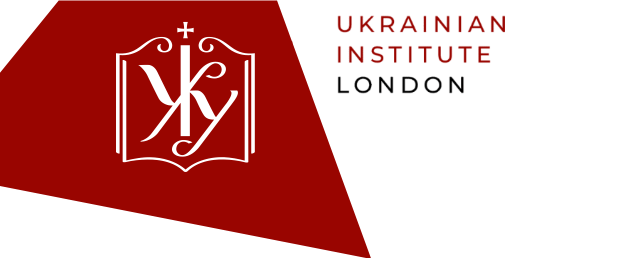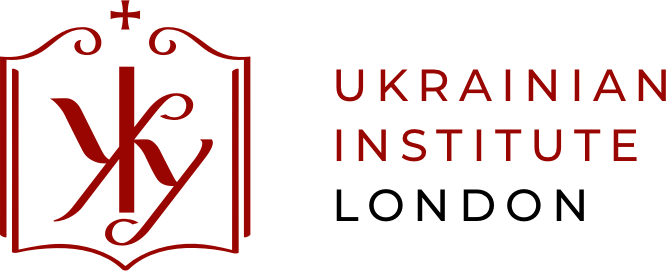One student’s reflections on the Ukrainian Institute London’s online history course: Istoria.

AUTHOR
Chris Bilous is a Ukrainian Londoner living in Scotland, with a passion for languages, photography, and a free Ukraine.
Part of the study of history is to organise the threads of the past so that we can understand the present. I, in particular, have studied history as a way of organising the threads of my own past so I can understand myself – as a Ukrainian.
I was brought up in the UK. My parents raised me with stories of repression in the USSR, of my grandfather surviving the Holodomor (the famine of 1932-33), and my great-grandfather surviving imprisonment in the Gulag. My secondary school taught Soviet history for GCSEs, and Russian imperial history for A Levels. I chose these subjects so I could understand myself in facts as well as through family stories. History has always been about finding out how my people survived in spite of everything, in spite of Russia’s boot on our necks.
I have also had a difficult relationship with my Ukrainian identity – ‘too Ukrainian’ for the UK, ‘not Ukrainian enough’ for Ukraine. This becomes even more difficult to navigate when so much of Ukraine is made discursively invisible. Our history, culture and language have been historically repressed – and Ukraine is not exactly well-known or understood this side of the Oder-Neisse either.
For a long time, people didn’t even know where I was from: when I told them ‘Ukraine’, I would have to explain how it’s ‘between Poland and Russia’. It was as if Ukraine could only exist ‘in between’ other states.
Some people started to learn more about Ukraine after 2014. Many more are discovering Ukraine now, but again, only as subject to Russia’s violence, and its wars on our existence.
It is tricky to defend who you are when the big guy next door doesn’t want you to exist, and your neighbours don’t seem to know you exist. At least, I can turn to history for confirmation of our existence.
I saw Istoria, the Ukrainian Institute London’s course about Ukraine’s history, and was delighted – I had to enrol. As I enrolled, Russia sent tanks to the Ukrainian borders. As we discussed who owns Kyivan Rus’ in class, Putin – literally at the same time as the seminar – insisted in a televised address that Ukraine was a mistake, a made-up state for which Lenin was to blame. To call this ‘surreal’ feels like an understatement.
It was truly an amazing course. I felt privileged to learn from scholars of Ukraine working in the field. It felt like our stories were truly ours: not just numbers in a GCSE textbook, not just footnotes of texts about empires. Learning about mining in Donbas, women’s creative resistance in the Gulag, Soviet Ukrainian theatre – it really felt like a new and exciting world for me, finding perspectives that had been hitherto obscured by Western academic frameworks.
Yet at the same time, the course was an experience of heartbreak. Were this (relative) peacetime for Ukraine, I think we would have had more space to discuss Ukrainian history on its own terms. But it was impossible not to relate every story of Ukraine back to the harsh, war-torn present in our country. It is painful to be discussing the repression of Ukrainians in the past while it happens once again in the present. And it becomes more difficult to resolve questions in Ukraine’s history and identity when the country’s very existence is once more under threat.
Istoria helped me answer my own questions, and helped me ask new ones too. It challenged my assumptions and gave me new leads to follow.
In this time of war, it is even more crucial to study, discuss and preserve Ukraine’s many histories (the good, the bad, and the ugly). One day I hope we will be able to do this without the ever-present threat to Ukraine’s existence, as well.


